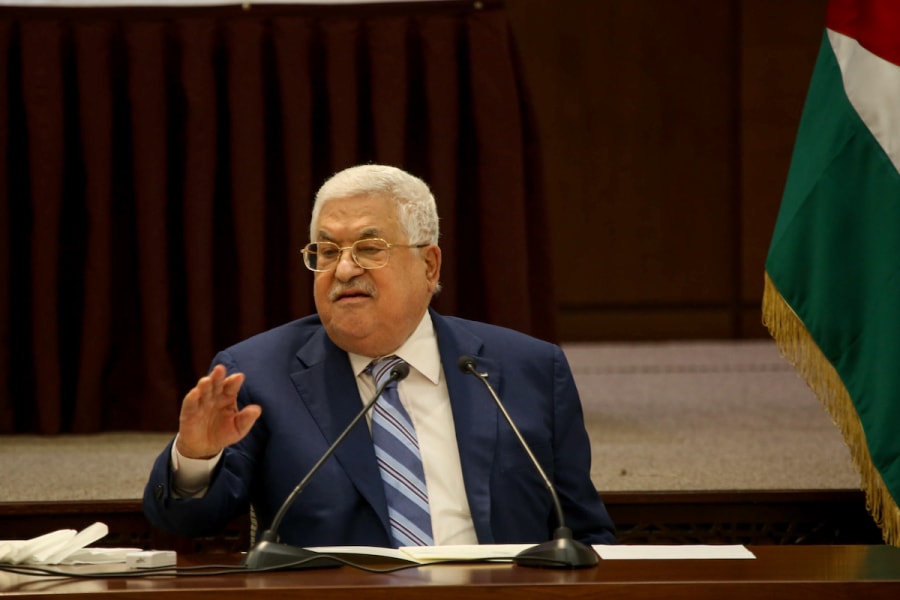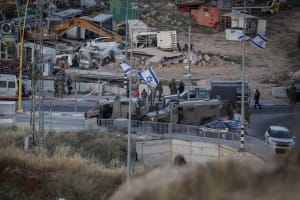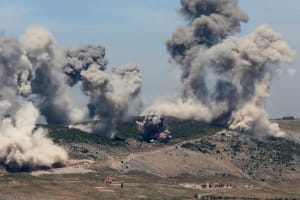Inside the PLO: The hidden history behind the Palestinian leadership

In May 1982, a Palestinian doctoral candidate at Moscow's Patrice Lumumba University completed his dissertation. The work, titled,"The Other Side: The Secret Relationship Between Nazism and Zionism," presented stark claims: that Zionist leaders were "basic partners in crime" with the Nazis, that the movement deliberately incited Nazi hatred against Jews to fuel mass extermination, that the widely accepted figure of six million Holocaust victims was a "fantastic lie," and that Zionism shared ideological parallels with Nazi racial theories. The student even argued that the 1942 Biltmore Conference had provoked Hitler into accelerating the Final Solution. The candidate's controversial thesis earned him a Candidate of Sciences degree, equivalent to a PhD in Western universities.
The student's name was Mahmoud Abbas, who today serves as the president of the Palestinian Authority and chairman of the PLO (Palestine Liberation Organization) – the organization that Western powers now trust to lead a Palestinian state. This article will examine why such trust may be dangerously misplaced, analyzing the PLO's history of terrorism, deception, and extremist ideology that persists beneath its diplomatic veneer.
Moscow's Hidden Hand
The choice of Moscow for Abbas' studies was no coincidence. By the early 1980s, the Soviet Union had developed deep ties with the Palestinian leadership, viewing them as valuable assets in their Cold War strategy. Abbas himself was registered as a KGB agent under the codename "Krotov" (mole), working directly with Mikhail Bogdanov, the KGB station chief in Damascus – a fact revealed through the Mitrokhin Archive, a comprehensive collection of KGB documents smuggled out by former KGB archivist Vasili Mitrokhin after he defected to the UK. The archive, considered one of the most significant intelligence leaks in history, exposed the deep extent of Soviet penetration into Palestinian organizations. This connection exemplified a broader pattern of Soviet influence over Palestinian organizations, meticulously documented in Mitrokhin's files.
The KGB's influence extended far beyond Abbas. Throughout the 1960s and 1970s, the Soviet Union provided military training, ideological education, and strategic guidance to PLO operatives. This relationship helped shape the organization's tactical approach, combining guerrilla warfare with political manipulation – a strategy that would later evolve into the PLO's characteristic blend of diplomacy and terrorism. The Palestinian identity was in many ways a Russian disinformation maneuver from the beginning.
The Campaign of Terror: A Systematic Strategy
The seeds of today's Palestinian leadership were planted in the late 1950s when Yasser Arafat and his associates founded Fatah as an independent revolutionary movement dedicated to an armed struggle against Israel.
While Arafat built his leadership persona around being born in Jerusalem, extensive evidence shows he was born in Cairo, Egypt on August 24, 1929. His Egyptian birth certificate, found by multiple biographers, definitively places his birth in Cairo, where his father from Gaza owned a business. This pattern of narrative manipulation would become emblematic of PLO leadership – presenting one face to the West while maintaining a different reality. Despite clear documentation including his birth certificate and extensive biographical research confirming his Cairo origins, Arafat consistently claimed Jerusalem as his birthplace, probably to strengthen his credentials as a Palestinian leader and his connection to the holy city. This early example of strategic identity crafting would foreshadow decades of the PLO leadership's complex relationship with truth and international diplomacy.
While Fatah was conducting guerrilla raids to establish its militant credentials, the PLO was created in 1964 by Egyptian President Gamal Abdel Nasser as an instrument to control Palestinian nationalism. The watershed moment came after the 1967 Six-Day War, with Arab armies defeated and Palestinian populations under Israeli control. Fatah's message of armed struggle and self-reliance resonated powerfully enough for the organization to seize control of the PLO's executive bodies by 1969, with Arafat assuming chairmanship, a position he would hold until he died in 2004.
The PLO's terror campaign of the 1970s represented a calculated strategy to internationalize the Palestinian cause. Major attacks included:
- The Munich Olympics Massacre (1972): Black September, a PLO affiliate, murdered 11 Israeli athletes
- The Ma'alot Massacre (1974): 21 schoolchildren killed in northern Israel
- The Coastal Road Massacre (1978): 37 civilians killed in a bus hijacking
- The Savoy Hotel Attack (1975): Multiple civilians killed in Tel Aviv
- The Achille Lauro Hijacking (1985): Elderly American passenger murdered
These attacks served multiple purposes. They were designed to generate international media attention, demoralize Israeli society, demonstrate Palestinian military capabilities, and force diplomatic recognition of Palestinian demands through terror.
The Lebanon Years: Building a State Within a State
After being expelled from Jordan in "Black September" 1970, the organization established a virtual state-within-a-state in Lebanon. The PLO's presence in Lebanon (1970-1982) represented its highest military and political powerpoint. This parallel governance structure included military bases and training camps, comprehensive administrative institutions, social services for Palestinian refugees, and international diplomatic offices. The biggest operational objective was terror attacks against Israel.
The Israeli invasion of 1982 ended this golden age, forcing the PLO leadership into distant exile in Tunisia.
The Peace Process Deception: Hudaybiyyah Strategy
Arafat used the following years to gain international support. He nurtured the image of a freedom fighter – fighting for a just cause. Arafat's Double Game proved to be the PLO's defining strategy. The organization's embrace of diplomacy after 1988 reflected what Arafat himself termed the "Hudaybiyyah peace" –referencing an Islamic historical precedent where a peace treaty was used as a temporary tactical retreat. In private Arabic speeches, Arafat regularly contradicted his public statements made in English to Western audiences.
While engaging in peace talks, the PLO continued funding and supporting terrorist activities, systematically violated Oslo Accords commitments, and ultimately launched the Second Intifada after rejecting peace offers that would have established a Palestinian state.
The paradox of Arafat's 1994 Nobel Peace Prize exemplifies the international community's willingness to accept theatrical gestures over substantive change. While receiving accolades for peace, the PLO maintained military units under various entities and continued anti-Israel incitement in Palestinian media and education. The organization preserved the goal of Israel's eventual destruction in internal documents while diverting international aid to fund terrorism. After Arafat's death, Abbas inherited and maintained this system of corruption and double-speak, while enriching himself and his inner circle through acquiring the billions in international aid intended for the Palestinian people.
Palestinian Authority Under PLO Control: Diplomatic Manipulation
Following Arafat’s death, Abbas assumed control, and under his leadership, the Palestinian Authority has become a study in institutional corruption. The organization has failed to account for billions in international aid, instituted widespread nepotism and cronyism throughout its ranks, maintained the "Martyrs Fund" that pays salaries to terrorists, systematically suppressed political opposition, and repeatedly manipulated electoral processes.
Abbas has perfected a strategy of diplomatic manipulation. He consistently refuses direct negotiations while blaming Israel for the lack of progress, maintains anti-Israel incitement while speaking of peace to international audiences, uses international forums to delegitimize Israel, and supports "popular resistance" while claiming to oppose violence.
The PA's track record under PLO leadership demonstrated a complete inability to maintain basic infrastructure, consistently failed to develop democratic institutions, remained entirely dependent on foreign aid for economic survival, proved incapable of controlling militant factions, and perpetuated systematic corruption at all levels of governance.
The PLO's history reveals a consistent pattern of using diplomacy as a tactical tool while maintaining strategic hostility toward Israel. Despite decades of Western support and billions in aid, the organization's leadership has built corrupt institutions that serve their personal interests rather than Palestinian needs, while their ultimate goal remains Israel's replacement rather than accepting coexistence.
Is the PLO better than Hamas?
The rise of Hamas has allowed the PLO to position itself as "moderate" while still maintaining fundamentally similar goals. The PLO continues to compete with Hamas for popular support through anti-Israel actions, coordinates with them behind the scenes when convenient, and cynically uses Hamas as a foil to extract Western support and legitimacy.
The common Western perception that the PLO/Fatah-led Palestinian Authority represents a more moderate alternative to Hamas deserves scrutiny. While Hamas openly declares its Islamic fundamentalist ideology and commitment to armed struggle, the PLO's history suggests a more nuanced form of extremism masked by diplomatic sophistication. Under both Arafat and Abbas, the PLO has maintained a dual strategy – presenting a secular, diplomatic face to Western audiences while privately undermining peace efforts.
The PLO's secular facade mirrors other Middle Eastern autocracies that have brought devastation to their regions. Like Saddam Hussein's regime in Iraq and Assad's rule in Syria, the PLO represents a supposedly secular alternative to religious extremism while engaging in comparable levels of violence and oppression. These regimes, while not overtly Islamist, proved just as capable of mass atrocities and regional destabilization as their religious counterparts. Given this historical pattern, we must ask ourselves: Do we want to establish another such state in the heart of the Middle East?
Every Tree Is Known By Its Fruit
In Abbas' Moscow dissertation lies the key to understanding the PLO's true nature: an organization built on historical revisionism, ideological extremism, and tactical deception. His dissertation equated the victims with their executioners, the rescuers with the murderers, and the movement to save Jews with the movement to exterminate them.
Notably, Abbas has never explicitly apologized for or retracted the claims made in his dissertation. While he did issue an apology in 2018 for controversial remarks suggesting Jewish behavior caused the Holocaust, this was specifically limited to that speech and did not address his earlier academic work that had laid the groundwork for such thinking.
Where Abbas' dissertation engaged in moral equivalence between victims and perpetrators, we must not make the same mistake. The PLO's diplomatic gestures and current political standing do not erase its history of terrorism, nor do they qualify an organization built on such foundations to be entrusted with a state.

Tolik is a Middle East analyst and media professional with extensive experience in covering regional geopolitical developments. His background spans analytical journalism, media production, and strategic communications, having contributed to major Israeli and international television networks and newspapers.
You might also like to read this:
















